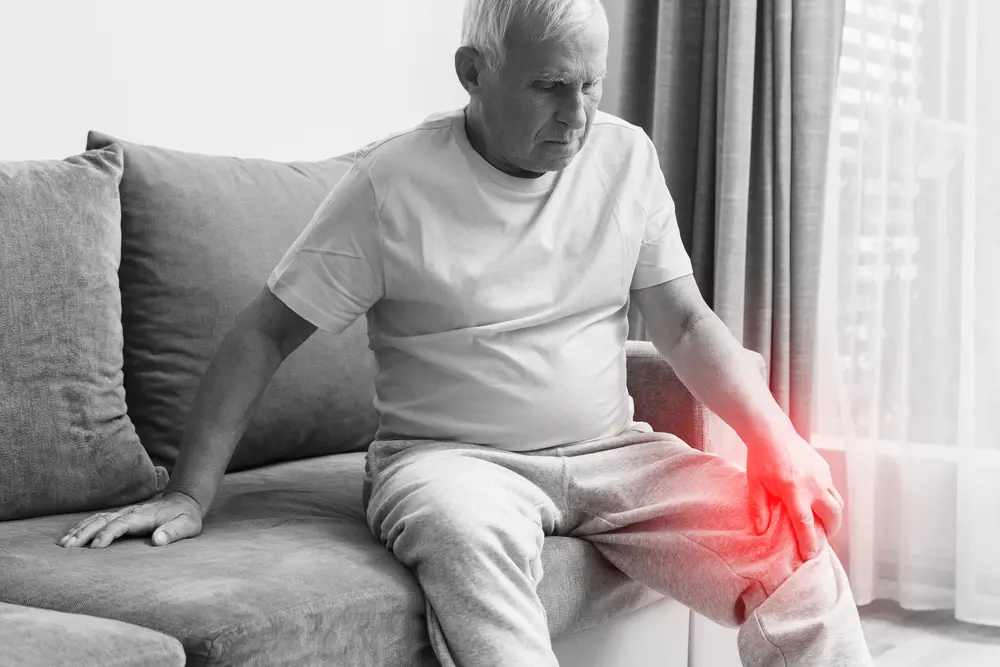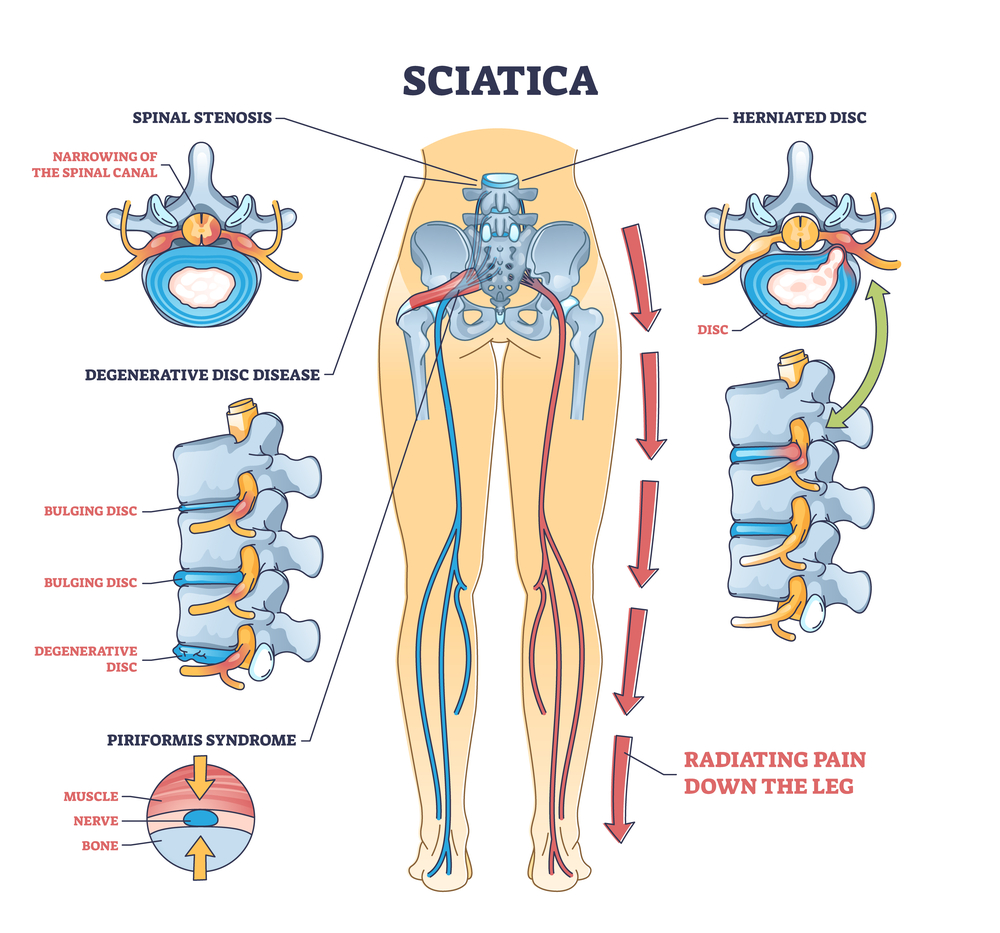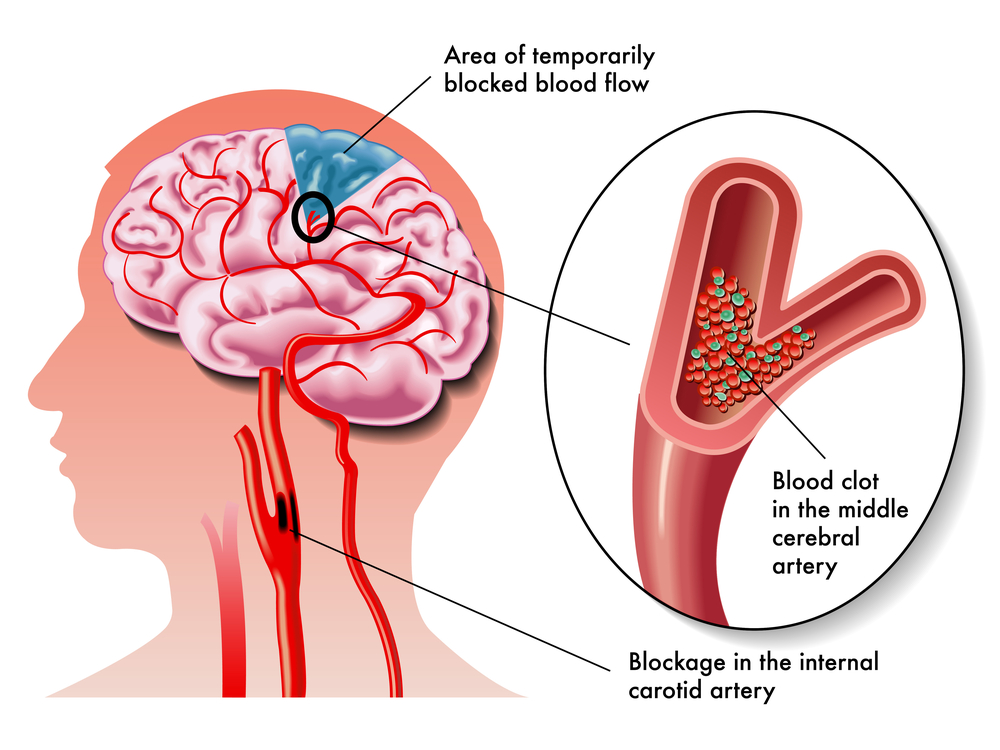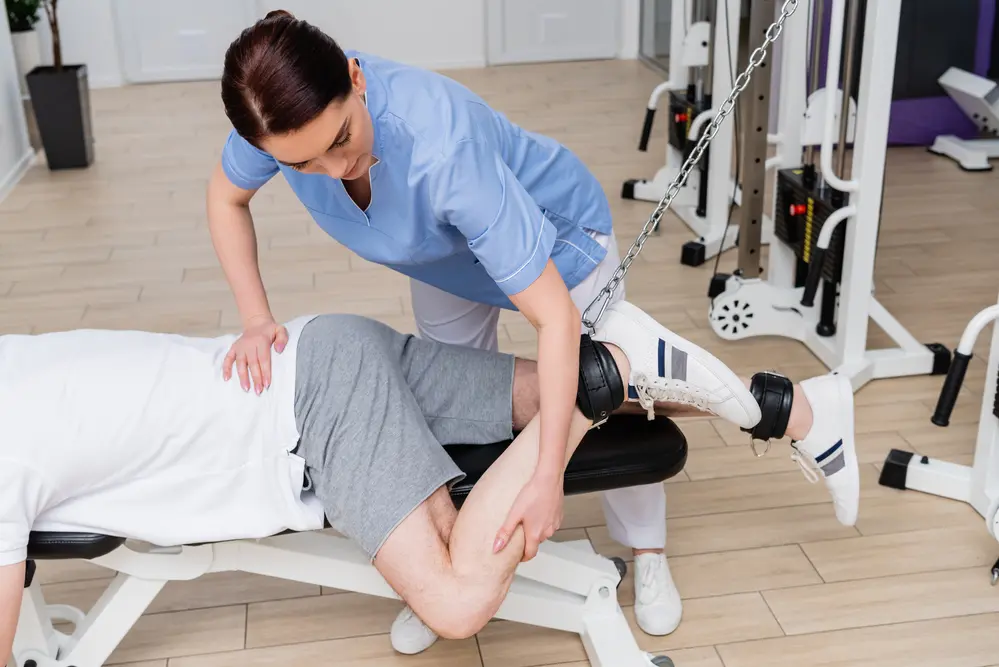How often have you gotten out of bed and realized you couldn’t feel your leg?
A different scenario would be if you were to fall to the floor after striking the side of your thigh against a table. It can be very unsettling, for sure.
It may also be challenging to put weight on the impacted foot due to the heaviness in the affected limb.
Is it possible for your leg to give out from sciatica? If your leg suddenly gave out, what would it be from? In what ways can unsteady knees be helped?
Let us dive into the details.
Characteristics of leg weakness
According to one study, nearly 12% of adults aged 36 to 94 experienced at least one knee-buckling episode in the right or left leg every three months. It also shows that short-term leg weakness can happen to anyone, no matter how fit they are.
Depending on the reason, both legs may be weak because:
- Both legs feel the same amount of weakness.
- One leg is weaker than the other.
- Gradual as the problem got worse over time.
- Sudden weakness in one or both legs could be a medical emergency, and you should go to the hospital immediately.
There may be more severe reasons.
Common symptoms of leg weakness
The following symptoms may also be associated with weakness in both legs:
- Tingling in the legs.
- Leg numbness.
- Leg pain.
- Inability to move legs or difficulty in walking.
- Numbness in the skin.
- Back pain that could radiate to your legs.
- Bowel and bladder changes in some cases.
Less serious causes of leg weakness
Knowing what causes you to lose your balance or your legs to feel weak or give out is also helpful.
First, we’ll review some less serious causes of limb weakness and things that can make your joints more prone to giving out on you.
Begnine Causes of leg pain and weakness could be:

Leg Spasms
Any muscle can cramp for a short time and out of the blue. You may experience this muscle cramp during exercise or when you over-exert your muscles.
They are only bothersome once they occur for long periods and cause mild muscle weakness and pain.
Orthostatic Hypotension
You can lose your balance and fall when you suddenly move from lying down to standing up. This is called orthostatic hypotension. It usually occurs due to an electrolyte imbalance or very low blood pressure.
Lightheadedness, dizziness, and even fainting may result from orthostatic hypotension.
Aging
According to studies, adults 50 and older lose 15% of their muscle strength per decade.
This can limit their endurance to the point where their legs feel weakened. You may experience a daily or chronic decrease in leg strength when it occurs.
Arthritic Changes.
Similar to aging, arthritis can harm the tissues and structures of the leg, leading to instability and even collapse of the joint.
Muscle Weakness
Muscle weakness can be caused by many things, like being tired, having an infection, being dehydrated, having an electrolyte disorder, or taking a medicine like statins.
Muscle aches and weakness can result from a disruption in neural communication leading to them. The stimulus from the brain is carried by spinal nerve cells to the muscle. It instructs the muscle to contract. If this keeps up, the muscle might get weaker.
Multiple Sclerosis (MS)
Multiple sclerosis is an autoimmune disease that causes muscle weakness and paralysis. These symptoms increase the likelihood that knee or leg weakness will develop, leading to falls.
MS-related leg weakness can affect either one or both legs simultaneously. However, occurrences are more frequent on one side than the other.
It is typically diagnosed in people aged 20 to 50, with brief periods of relapse and remission, and requires several tests and assessments.
Medicine and physical therapy can help you recover power in your legs and delay disease development.
Always visit your doctor if you experience weakness that develops gradually. Often, early detection of a problem can prevent it from worsening.
Traumatic Causes of Limb Weakness
A traumatic injury can cause the collapse of the legs. Accidents can cause severe pain and sudden leg weakness.
In other instances, however, an untreated injury may worsen before affecting leg stability. Some reasons include,
Meniscal Tear
Meniscus damage can result from sudden knee trauma, a twist, or repeated wear and strain on knee cartilage, which may impair knee function.
Ligament Tear
A collapsed knee and fall can result from torn ligaments caused by an impact on the knee or an abrupt turning action.
Nerve Injury
A direct injury to a nerve in the lower extremity may result in weakness. Contact sports, martial arts, and automobile accidents can cause nerve damage.
Knee Cap Injuries
A traumatic blow to the knee cap, known as the patella, causes it to dislocate entirely or partially from the groove in the leg bone (femur).
Depending on the dislocation’s wrong, the patella may become unstable or move out of place, making you fall.
Spinal Causes of Sudden Leg Weakness
Weakness in the legs can be caused by other medical conditions that affect the spinal column, the backbone (vertebrae), or the spinal nerves that leave the spinal cord. A few of these prerequisites are:
Pinched Nerve
Yes! Leg weakness could be the earliest indication of a problem with the pinched nerve.
A pinched spinal nerve can block impulses from the brain to the legs. Pain, numbness, tingling or prickling feelings, and weakness in the legs are all possible signs of a pinched nerve.
Nerve root compression
Nerve compression, which interferes with the average signal from the brain to the muscles, can cause weakness and “giving out” incidents in the legs.
Direct trauma, tumor development on the spine, extended or prolonged pressure on the spine, and diabetes are all potential causes of nerve damage.
Slipped Disc
A bulging disc occurs when the gel-like material that cushions your vertebrae protrudes through a rupture in the disc’s exterior, causing discomfort and extreme pain.
It can occur as a result of either direct trauma to the spine or the normal degeneration that occurs with aging.
Spinal Cord Injury
One of the most common reasons legs give out is a problem with the spinal cord.
Damage to the spinal cord can cause paralysis of one or both legs.
The severity of spinal cord injuries varies, but they should always be checked out right away by a spine specialist as they can cause other symptoms and life-threatening situations.
Spinal Stenosis
Spinal stenosis is when the spinal cord is compressed due to a narrowing of the spinal canal within the spinal column or of the openings through which nerves depart the spinal column.
Spinal stenosis includes all the symptoms of nerve root compression, muscle cramps, and foot drop and requires medical treatment.
Sciatica
Sciatica is a spinal cord condition that compresses or squeezes the sciatic nerve as it leaves the spinal cord through the spaces between the bones.
Sciatica can also cause paralysis in an arm or limb and other symptoms such as tingling, warmth, or pain.
Rest and self-care steps, like stretching and physical therapy, are often sufficient to alleviate mild sciatica. If the pain persists for over a week or is particularly intense, you should see a doctor.

Cauda Equine Syndrome
The cauda equina is a bunch of nerves that extend to the end of the lumbar spinal column.
Compression of the cauda equina happens when the lower portion of the spinal cord is compressed, as in the case of tumors, collections of fluid (abscesses), or significant disc protrusion. It is a rare disorder.
The symptoms of cauda equina syndrome may be mild, but this disease should not be taken lightly.
Spinal Tumor
A spinal lesion or tumor is an abnormal tissue growth in the spinal column or cord or the area around it. Spinal tumors may be malignant or benign, develop in the spine or spinal column, or have migrated there from another location.
Any of these conditions, including weak legs, require a trip to the spine specialist. It could be a sign of a more severe problem with the vertebrae that need to be checked out right away by a doctor.
More Serious Causes of Leg Weakness
Apart from mild conditions, sudden muscle weakness in the legs can be due to the following,
Stroke
A stroke is a serious medical condition requiring immediate attention due to the blockage of blood flow from the body to the brain due to the formation of blood clots.
Common stroke symptoms include difficulty speaking, vision problems, confusion, dizziness, and drooping of the face. Immediately seek medical attention if these symptoms manifest.
Leg weakness can occur suddenly and is usually on one side. It is best to call 911 for a medical emergency.

GB Syndrome
Guillain-Barré syndrome (GBS) is a potentially fatal nerve disorder. It affects approximately one in 100,000 Americans annually.
GBS differs from a stroke in that it affects the nerves, rather than the brain, and both sides of the body. GBS begins with paralysis or sensation in both extremities, eventually moving to the upper body.
Although infectious agents like a stomach infection or the common cold can set off the condition, its origin is unknown.
The most dangerous thing about GBS is the chest muscles’ weakness, making breathing hard and requiring medical help.
What are the treatment options?
A doctor should look into all potential causes of leg weakness. Your doctor can perform a physical examination and any necessary tests to determine the root cause of your leg weakness and prescribe the appropriate treatment.
However, if your leg weakness developed gradually or resulted from an accident or injury, you can treat it at home while you wait to see a doctor.

Rest: Leg muscle weakness is usually caused by an injury or too much work, which can be fixed by rest.
Exercises: Mild to moderate movements and exercises are equally suitable for reducing sudden leg weakness.
Once the cause of your leg weakness is determined, your doctor will be better able to treat it. Your treatment will be subject to the nature and severity of your condition.
Among the available treatment options are the following:
- Physical therapy may improve your quality of life, particularly if you have Multiple sclerosis or a Stroke. In the first case, a physical therapist may prescribe progressive resistance exercises for muscle strengthening.
- Painful conditions like peripheral neuropathy and neuralgia can be managed with OTC analgesics like ibuprofen and paracetamol.
- If you have an electrolyte deficiency, changing your nutrition may help. Your doctor may prescribe vitamins and minerals like calcium, magnesium oxide, and potassium oxide.
- The doctor can also prescribe assistive devices such as standing frames, braces, and wheelchairs to assist in movement and avoid leg collapse.
- Surgical intervention may be the first line of defense for some medical issues (like a ruptured disc) or serious spinal stenosis.
When should I see a doctor?
For a spinal severe, always examine your legs because they could be weak due to a serious issue that requires attention.
Get medical help right away if:
- Your weakness is paired with sudden, severe back or leg pain.
- You see a sudden loss of bladder or bowel control.
- Symptoms of stroke.
- Symptoms that go along with leg weakness: Increased fatigue, sudden weight loss, or headaches that don’t go away
If you experience sudden weakness in your legs that persists for a more extended period, a specialist must check them out immediately.
Before You Go
Weakness in the legs is typically caused by issues with the lower body’s nerves and muscles, both of which can be rectified with proper treatment and physical therapy.
But many changes are required when you are diagnosed with a medical condition that limits your mobility. You can help those in such a situation in many ways. If you’re looking for insight and inspiration, check out the post on how to help someone newly paralyzed.

